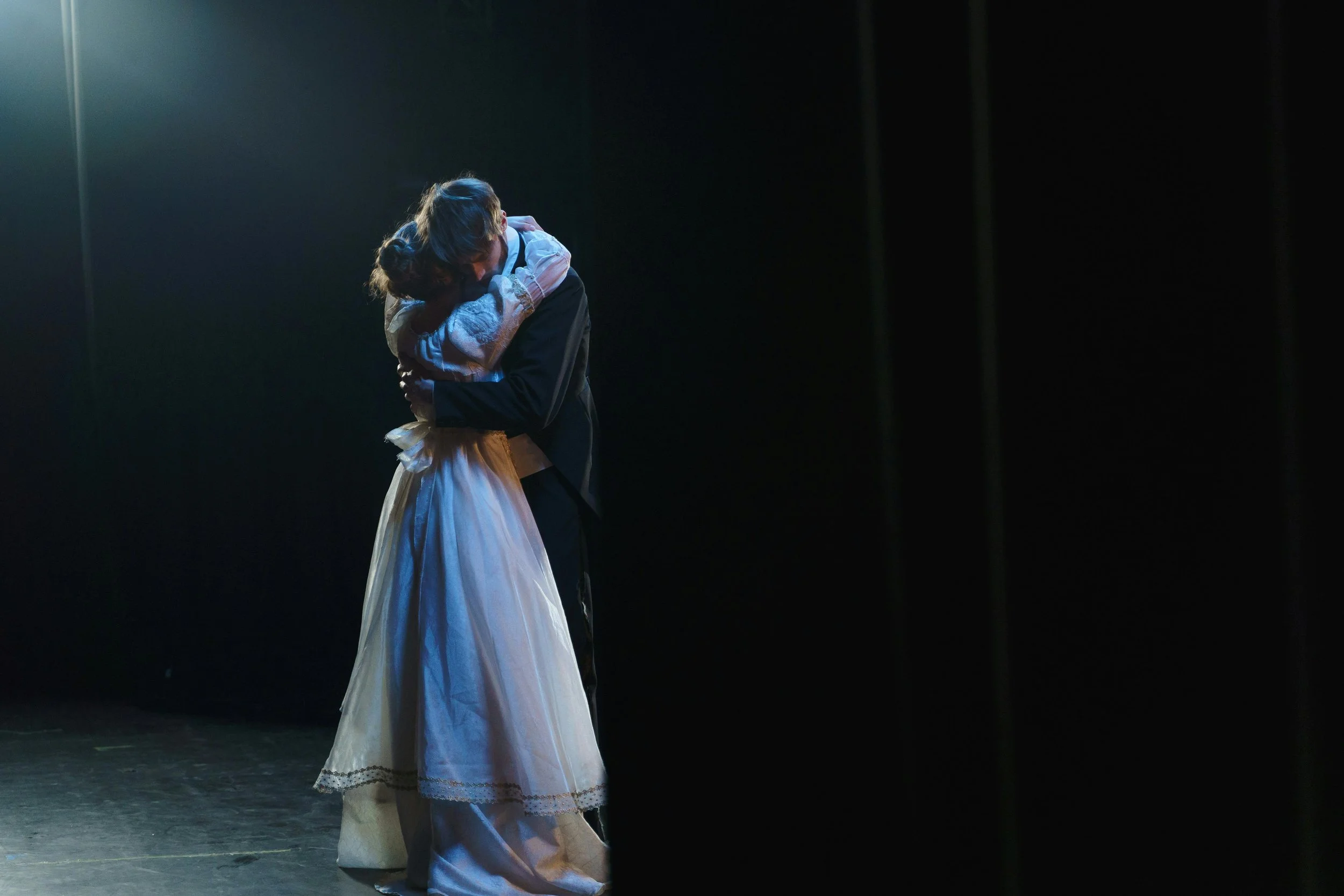Why High School Theatre Needs Intimacy Coordinators
by Chris Peterson
I recently saw a TikTok from a high school actress sharing a story that really stuck with me. During her school’s production of Side Show, a moment in the “Tunnel of Love” song turned into something uncomfortable. Her male co-star crossed boundaries that made her feel unsafe, and when she told stage management, they just ignored her.
That story isn’t just a one-off. It points to a bigger problem in high school theatre, where physical intimacy is often handled without clear guidelines or support. Professionals on Broadway and in film have intimacy coordinators to manage these moments with care and respect. But in many schools, that role is missing, usually because people think it isn’t necessary when the intimate moments are “small” or brief. That assumption couldn’t be more wrong.
An intimacy coordinator is a trained expert who makes sure everyone feels safe and respected when scenes involve physical contact. Whether it’s a kiss, a hug, or any kind of touch, their job is to set boundaries, mediate conversations about consent, and choreograph those moments just like a fight coordinator does for stage combat.
High school students are learning, growing, and figuring out boundaries themselves. They might not have the confidence to speak up if something crosses a line. That leaves them vulnerable to unwanted touches or pressure that can lead to real trauma or lasting discomfort.
Even a quick, intimate moment can affect someone deeply. What looks casual to one person can feel invasive to another. A gesture that isn’t clearly agreed upon can cause anxiety or freeze a performance. And when a young actor feels unsafe, it shakes their trust in the theatre community and their own confidence.
Intimacy coordinators bring professionalism and safety to every rehearsal and performance. They start by meeting the cast and creative team, hearing everyone’s boundaries and concerns. Then they carefully choreograph every intimate move so everyone knows exactly what to expect, and no one is caught off guard.
Far from limiting creativity, this process actually frees actors. They can dive into their roles fully, knowing their boundaries will be respected. Plus, they learn important lessons about communication and consent that go beyond the stage.
Schools that bring in intimacy coordinators show they truly care about their students. They create spaces where actors feel safe and empowered to express themselves. They set a new standard for what theatre can and should be.
Some might say that hiring an intimacy coordinator costs too much or isn’t necessary for a high school play. But many professionals offer sliding scales, virtual sessions, or free resources just for educational programs. Even a quick workshop for directors and stage managers can change everything.
If you’re involved in school theatre, here’s my challenge: don’t wait for a problem to happen. If your show has any physical contact, even a brief hug or kiss, start the conversation now about how to protect your actors. Bring in an intimacy coordinator or at least train your team on how to keep intimacy safe and consensual.
No actor, no matter their age or experience, should ever feel unsafe doing their job. Every performer deserves to step on stage knowing their boundaries will be honored and their well-being is a priority.
By making intimacy coordination a part of your process, you’re not just protecting your cast, you’re teaching future artists how to create theatre that is safe, respectful, and inclusive. That’s a legacy worth building.
